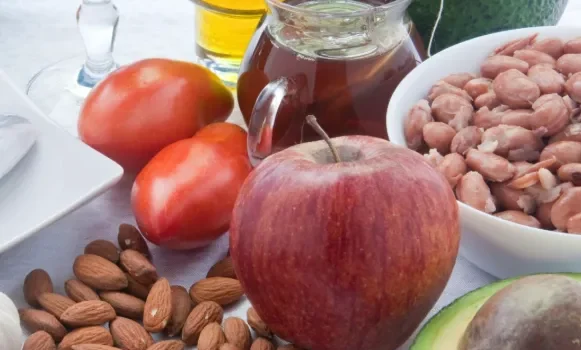High blood pressure, or hypertension, is a condition that affects millions worldwide. If left uncontrolled, it can lead to serious health issues such as heart disease, kidney disease, and stroke. While medication is often used to manage high blood pressure, lifestyle changes—including diet, exercise, stress management, and natural supplements—can also play a significant role in regulating blood pressure levels.
Which Natural Supplements Can Support Blood Pressure Management?
Several vitamins, minerals, and herbs are thought to help support healthy blood pressure levels. While supplements alone cannot cure hypertension, incorporating them into a broader treatment plan can offer additional benefits, especially when combined with medical treatment and lifestyle changes.
Magnesium
Magnesium plays an important role in relaxing blood vessels by promoting the movement of calcium and potassium across cell membranes. It also helps produce nitric oxide, which is essential for artery dilation and healthy blood pressure. Studies have found that taking approximately 500 milligrams of magnesium daily may help reduce both systolic and diastolic pressure over time. Magnesium can be found in foods such as leafy greens, nuts, seeds, beans, and whole grains, or through supplements if needed.
Potassium
Potassium helps balance fluid levels and ensures that nutrients are properly absorbed by cells. It also aids the kidneys in eliminating waste. Low potassium levels can lead to higher sodium retention, causing blood vessels to narrow and increasing blood pressure. Supplementing with potassium may help relax blood vessels, thus lowering blood pressure. However, those with kidney disease should avoid potassium supplements and consult with a healthcare provider before use.
Omega-3 Fatty Acids
Omega-3 fatty acids, found in fatty fish like salmon, have anti-inflammatory properties that can prevent plaque buildup in arteries. They also help blood vessels relax and can support healthy cholesterol levels. Studies suggest that omega-3s may help reduce both systolic and diastolic blood pressure. Incorporating omega-3-rich foods into your diet or taking supplements like fish oil could provide blood pressure-lowering benefits.
Coenzyme Q10
Coenzyme Q10 (CoQ10) is an antioxidant that supports energy production in cells and improves heart and vascular function. Research indicates that daily doses of 100-200 milligrams of CoQ10 may reduce systolic blood pressure, though its impact on diastolic pressure is less significant. It’s important to consult with your doctor before starting CoQ10, as it can interact with other medications.
Vitamin C
Vitamin C acts as an antioxidant and helps preserve nitric oxide levels in blood vessels, which promotes relaxation and improves blood flow. Some studies suggest that vitamin C supplementation (300-1,000 mg) may reduce blood pressure in people with hypertension. Foods rich in vitamin C, like citrus fruits, tomatoes, broccoli, and peppers, can also help you meet your daily intake.
Garlic
Garlic contains allicin, a compound that can promote vasodilation and help lower blood pressure. Research has shown that garlic supplements may be as effective as some blood pressure medications, without the side effects. Studies suggest that garlic can reduce systolic pressure by 6.7 mmHg and diastolic pressure by 4.8 mmHg, particularly when taken in doses of 600-2,400 mg of garlic powder daily for 8 to 24 weeks.
Beetroot Juice
Beetroot is rich in nitrates, which the body converts into nitric oxide to relax and widen blood vessels. Drinking beetroot juice regularly has been shown to lower both systolic and diastolic blood pressure. Consuming 70-250 milliliters of beetroot juice daily for about two months can provide significant blood pressure benefits.
Hibiscus Tea
Hibiscus tea has been shown to improve blood pressure by lowering both systolic and diastolic numbers. One study found that hibiscus tea reduced systolic pressure by 7.58 mmHg and diastolic pressure by 3.53 mmHg. However, if you are already on blood pressure medication, it’s important to consult with your healthcare provider, as hibiscus may interact with certain medications.
L-Arginine
L-arginine is an amino acid that helps produce nitric oxide, which relaxes blood vessels and enhances blood flow. Studies have suggested that supplementing with L-arginine (up to 9 grams per day) can lower both systolic and diastolic blood pressure. While initial findings are promising, more research is needed to understand its long-term effects on blood pressure.
Are Supplements Safe?
While many natural supplements may offer benefits for blood pressure control, some can interact with medications or cause unwanted side effects. For example, substances like licorice, ephedra, and yohimbine may increase blood pressure and should be avoided by people with hypertension. Always talk to your doctor before starting any new supplement regimen, especially if you are already on blood pressure medications.











